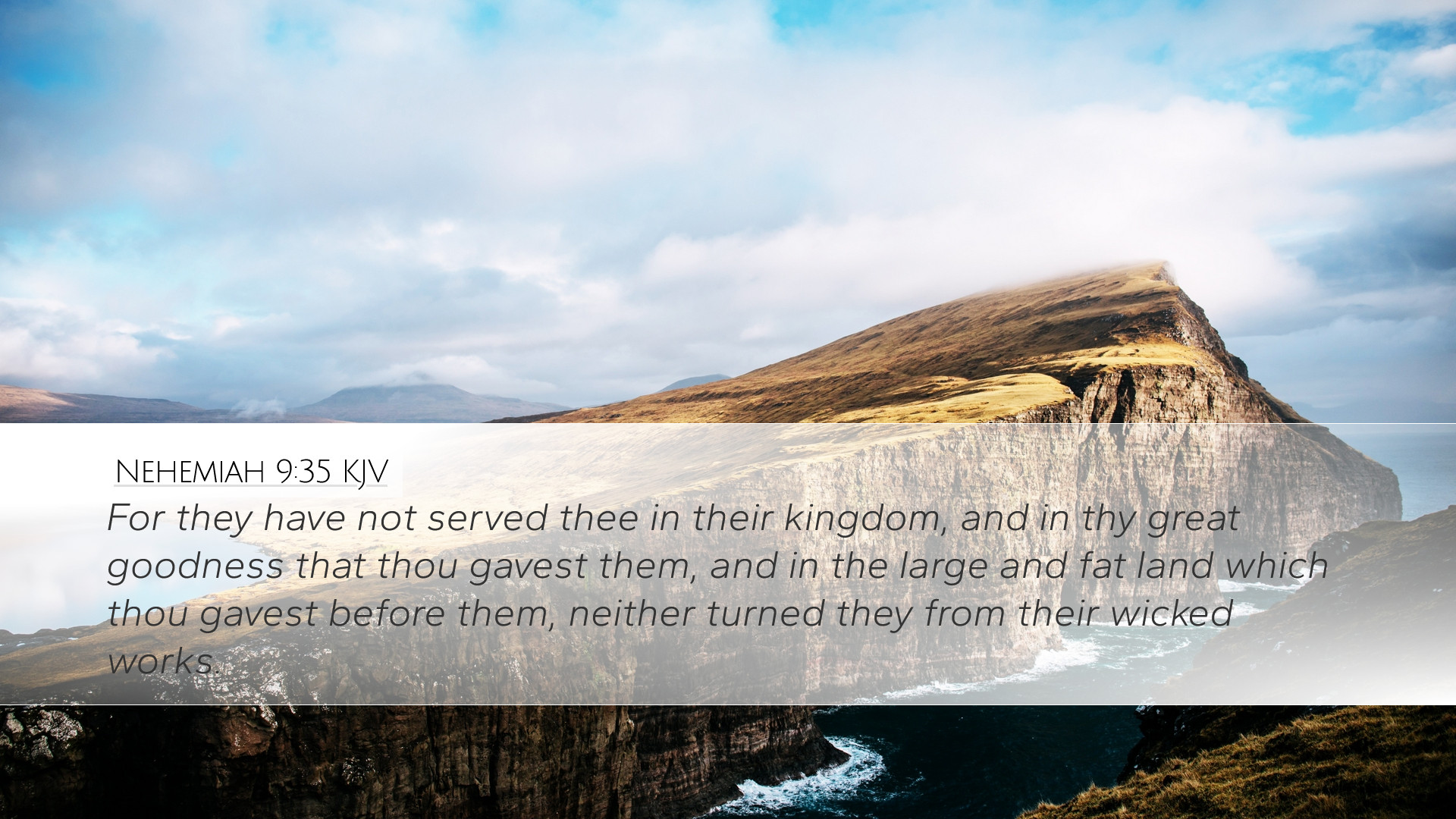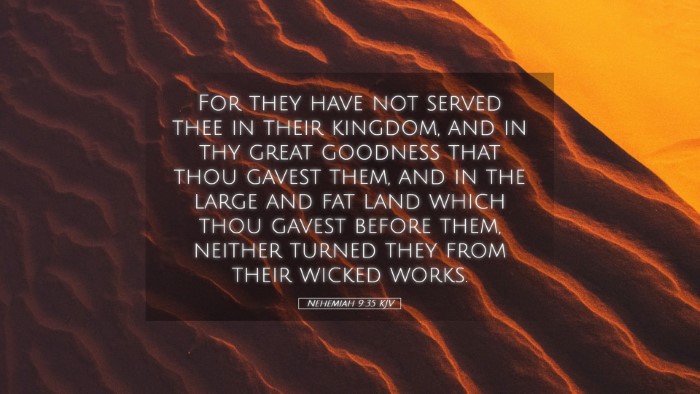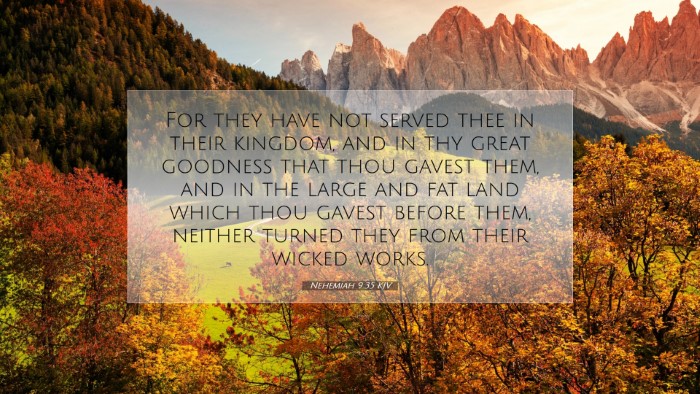Commentary on Nehemiah 9:35
Verse Context: Nehemiah 9:35 states: “For they have not served thee in their kingdom, and in thy great goodness that thou gavest them, and in the large and fat land which thou gavest before them, neither turned they from their wicked works.” This verse emerges from a prayer reflecting on the history of Israel, their disobedience, and the goodness of God amidst their failures.
Understanding the Verse
This scripture encapsulates the profound relationship between divine favor and human responsibility. It starkly contrasts God's provision with Israel's unfaithfulness, serving as a theological reminder of God’s goodness regardless of human shortcomings.
The Divine Goodness
Nehemiah reiterates God’s generosity: The “great goodness” refers to the blessings bestowed upon Israel, indicating not only physical sustenance but also spiritual guidance. This echoes the sentiments expressed in Deuteronomy 8:10-14, where the blessings of the Promised Land are celebrated.
Commentary Insights
- Matthew Henry: Henry emphasizes that God provided a fruitful land and a kingdom to rule, yet the people forsook their covenant obligations. His commentary notes that this unfaithfulness marred the relationship between God and Israel, demonstrating a contrast between God’s faithfulness and Israel’s recurrent rebellion.
- Albert Barnes: Barnes focuses on the idea of neglecting service and gratitude towards God, pointing out that the people failed to honor God’s gifts with sincere worship and obedience. Their kingdom was characterized by ingratitude, showcasing the need for a reflective return to genuine service.
- Adam Clarke: Clarke highlights the historical aspect of Israel’s kingdom, noting their repeated transgressions despite God’s patience and goodness. He stresses the importance of recognizing these patterns in the lives of believers today, cautioning against complacency in acknowledging God’s grace.
Spiritual Lessons
This verse offers profound spiritual lessons for contemporary believers:
- Gratitude in Abundance: As God’s people enjoy blessings, there comes the obligation to serve and honor Him genuinely.
- Self-Examination: The tendency to neglect God’s commandments is a recurring issue that requires constant reflection and discipline in the life of faith.
- Faithfulness of God: The unchanging goodness of God stands in stark contrast to human frailty, encouraging believers to seek a renewed relationship with Him.
Historical Context and Application
The context of this prayer within Nehemiah’s account is essential for understanding the weight of the verse. The Israelites, in a moment of repentance and reconciliation with God, reflect on their history of disobedience.
Application for Pastors and Theologians: This verse serves as a reminder that God’s provision is not merely for self-indulgent enjoyment but possesses a higher call to responsibility in the Kingdom of God.
Ethical Implications
Nehemiah 9:35 raises ethical questions regarding stewardship of God’s gifts. It invites every believer to consider the ways they utilize the blessings and responsibilities entrusted to them.
Conclusion
In summary, Nehemiah 9:35 is a profound reminder of the dichotomy between divine fidelity and human frailty. As scholars, pastors, and laypersons, understanding and teaching this verse can lead to deeper insights into God’s character and our calling. The historical reflection prompts an urgent call to action to serve God with integrity in light of His boundless goodness.


